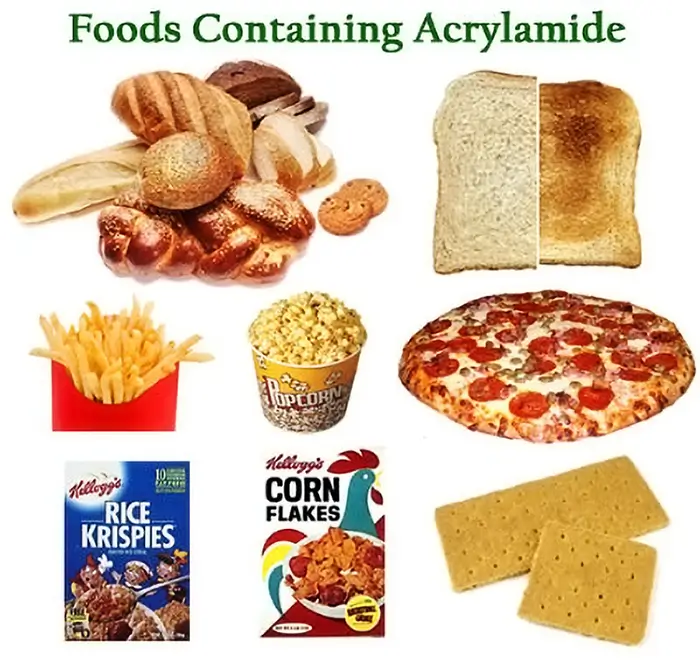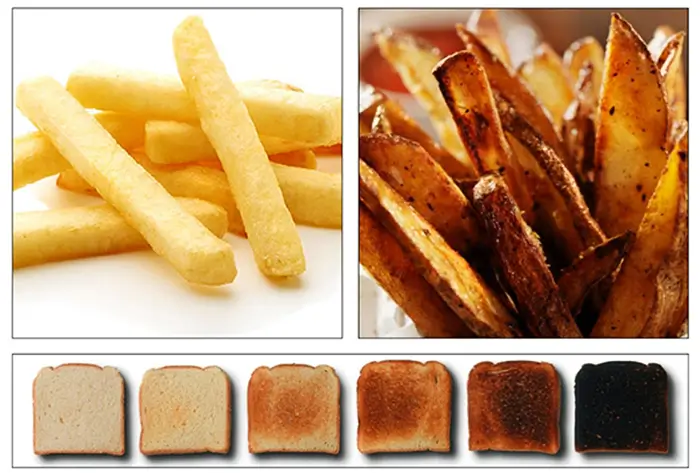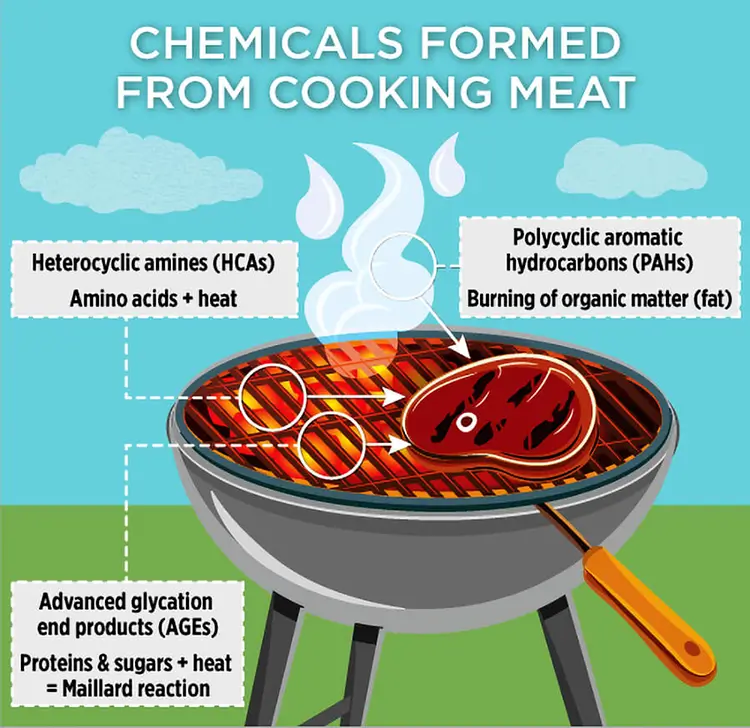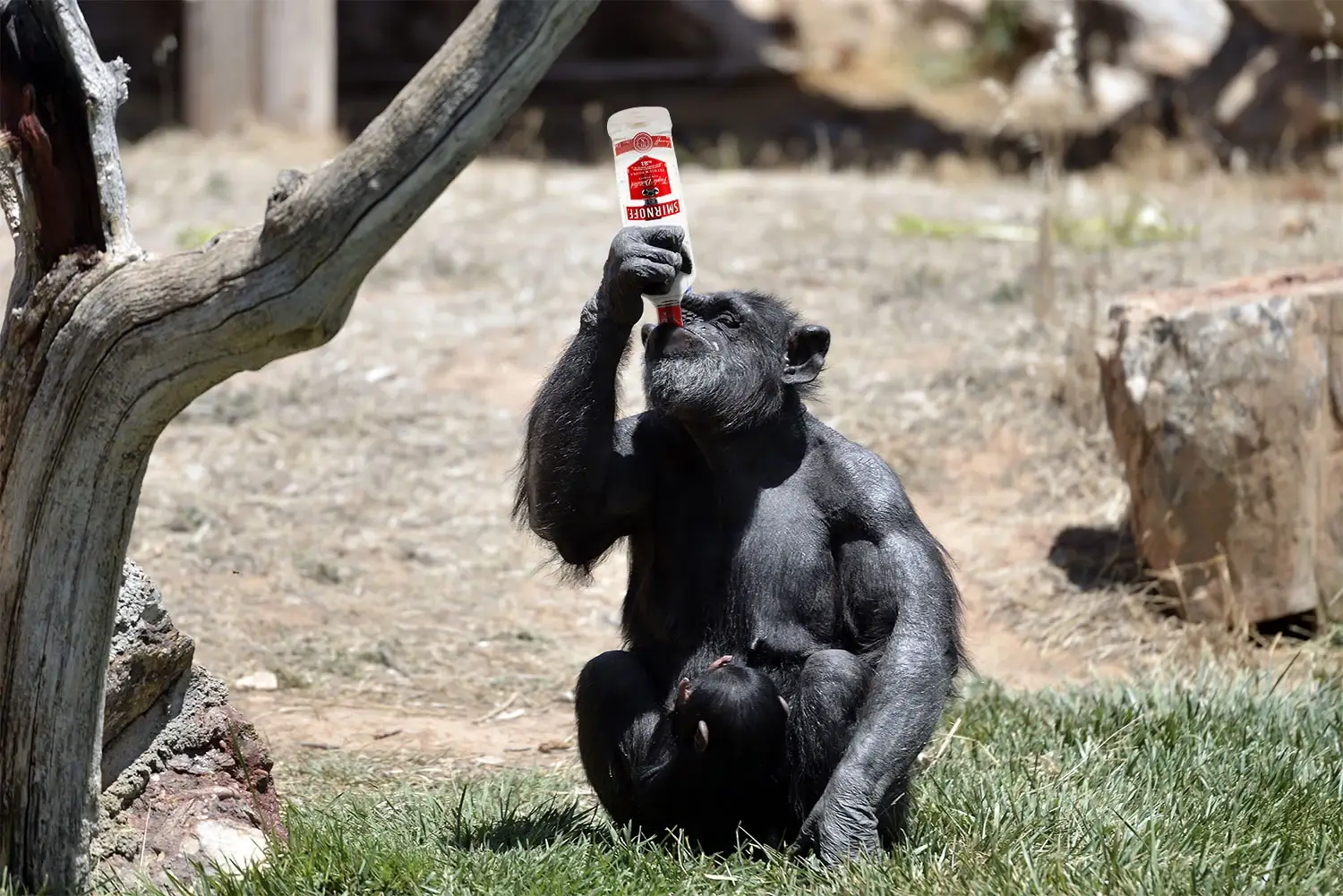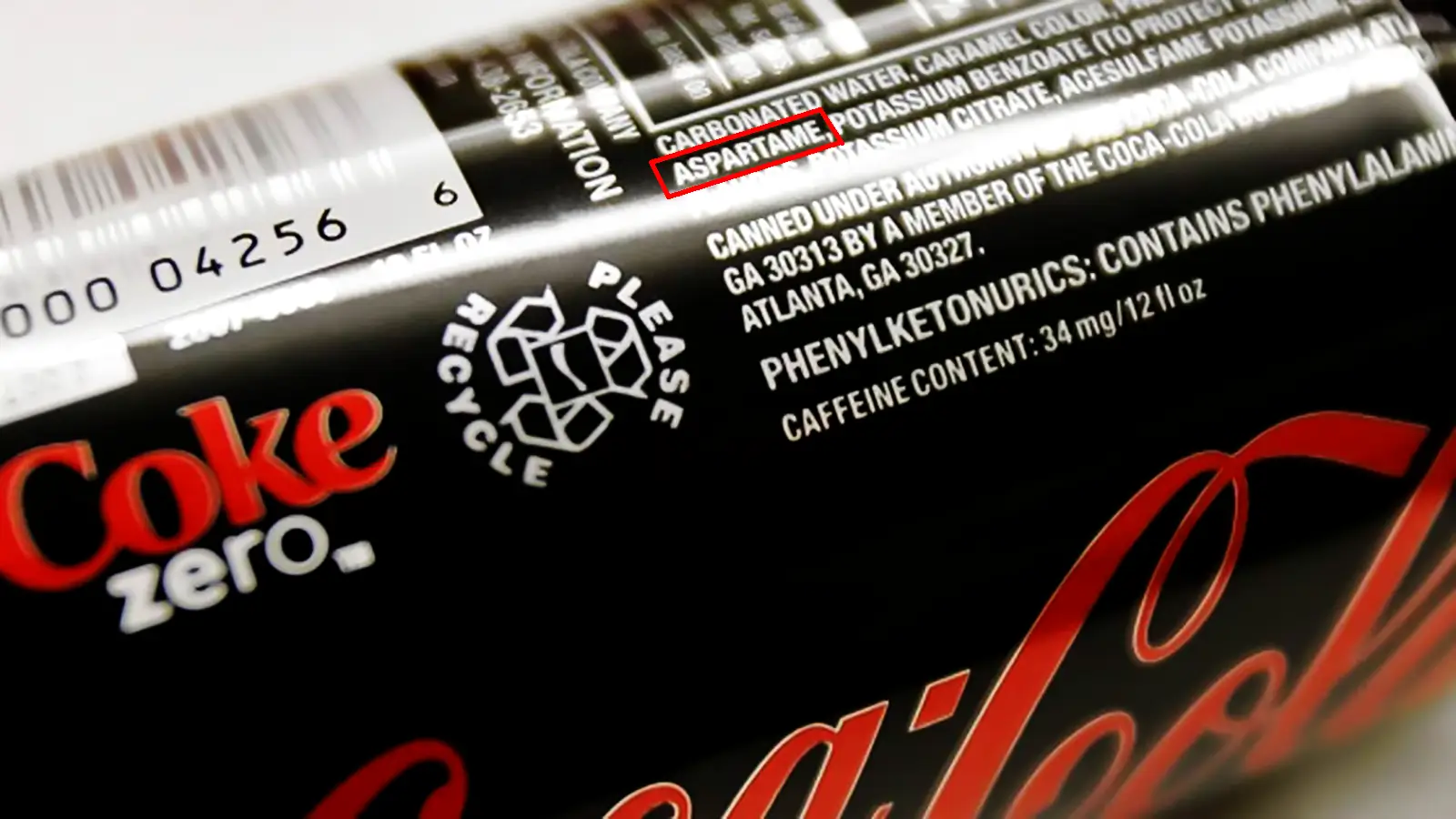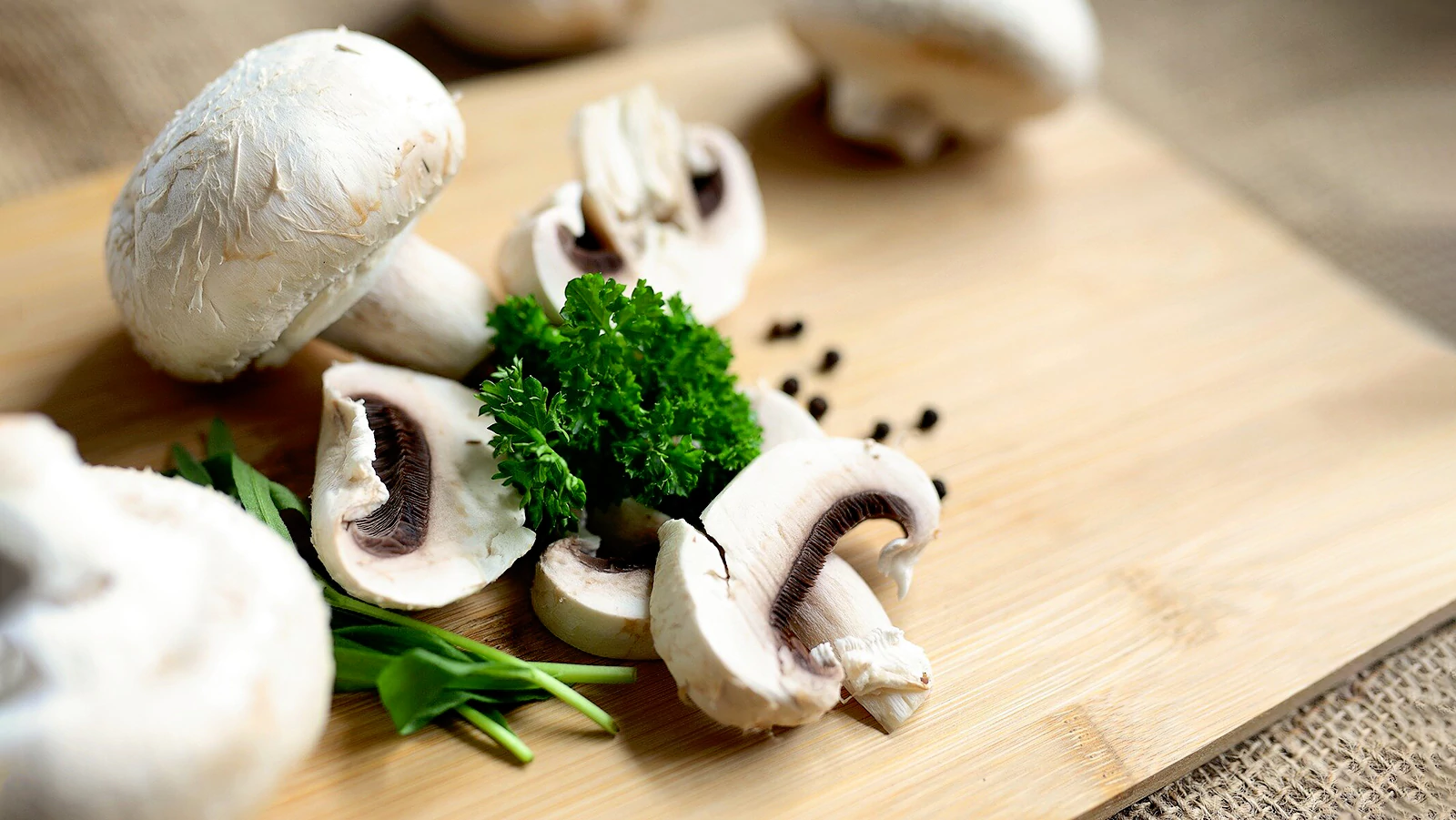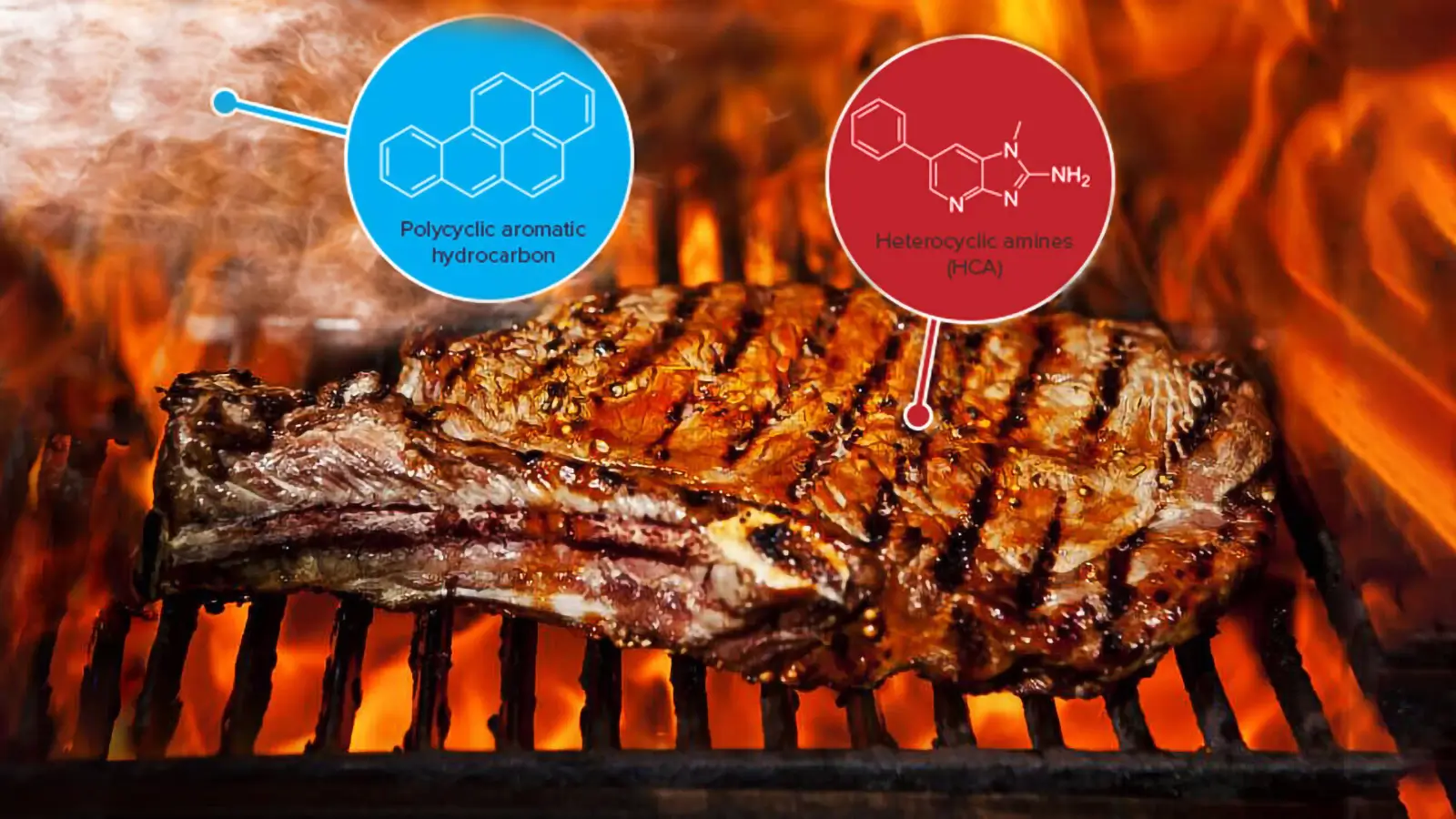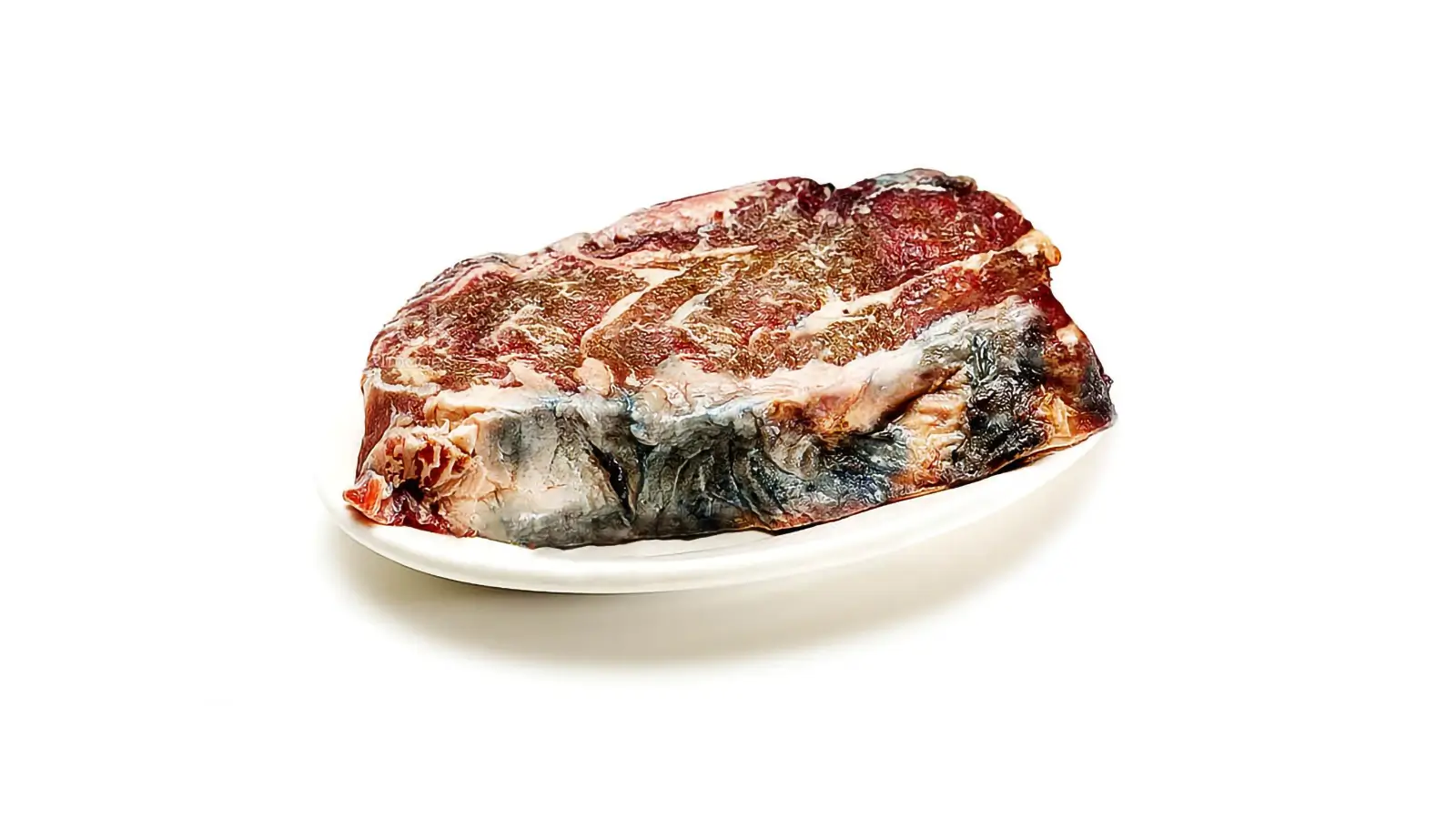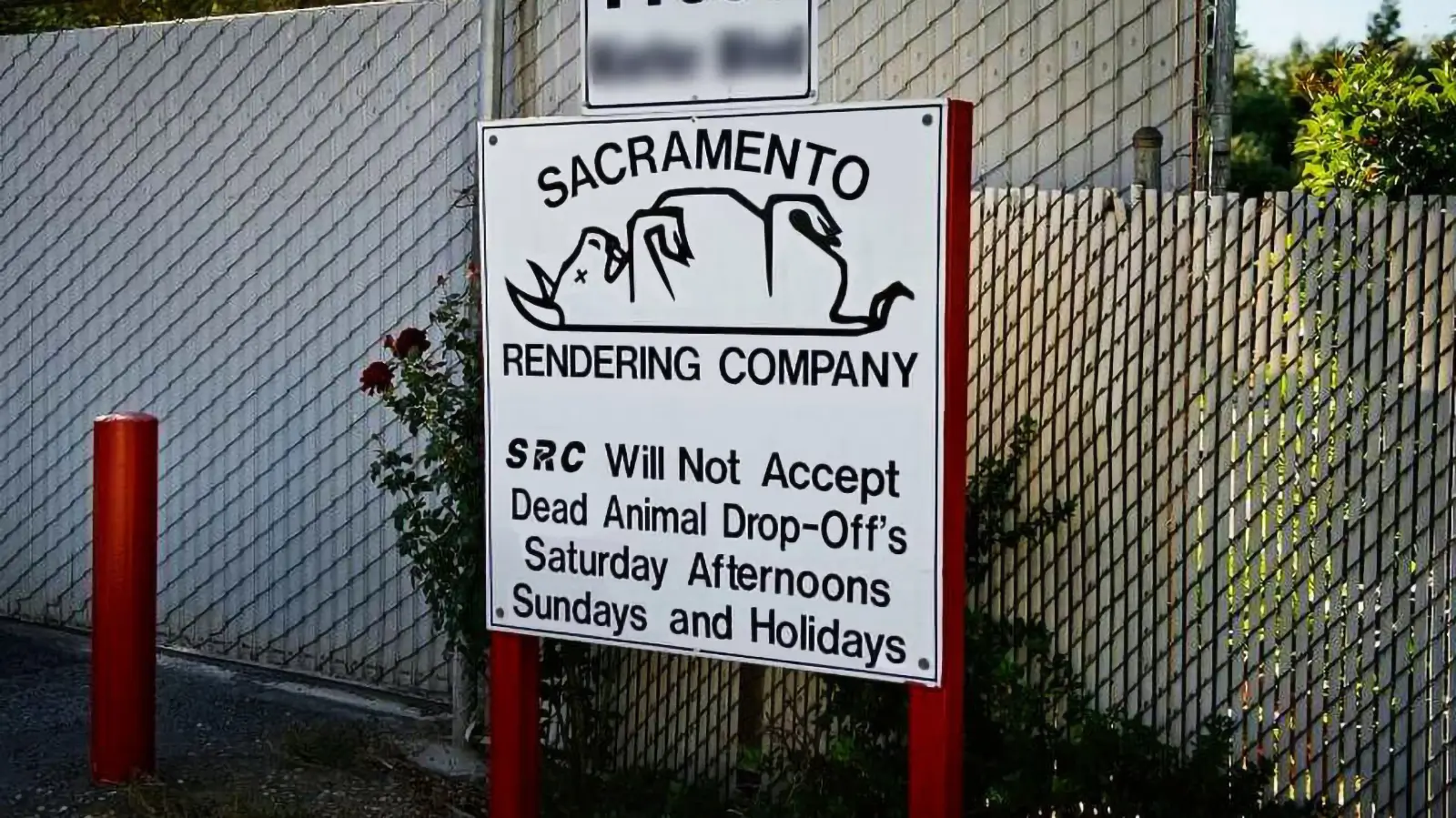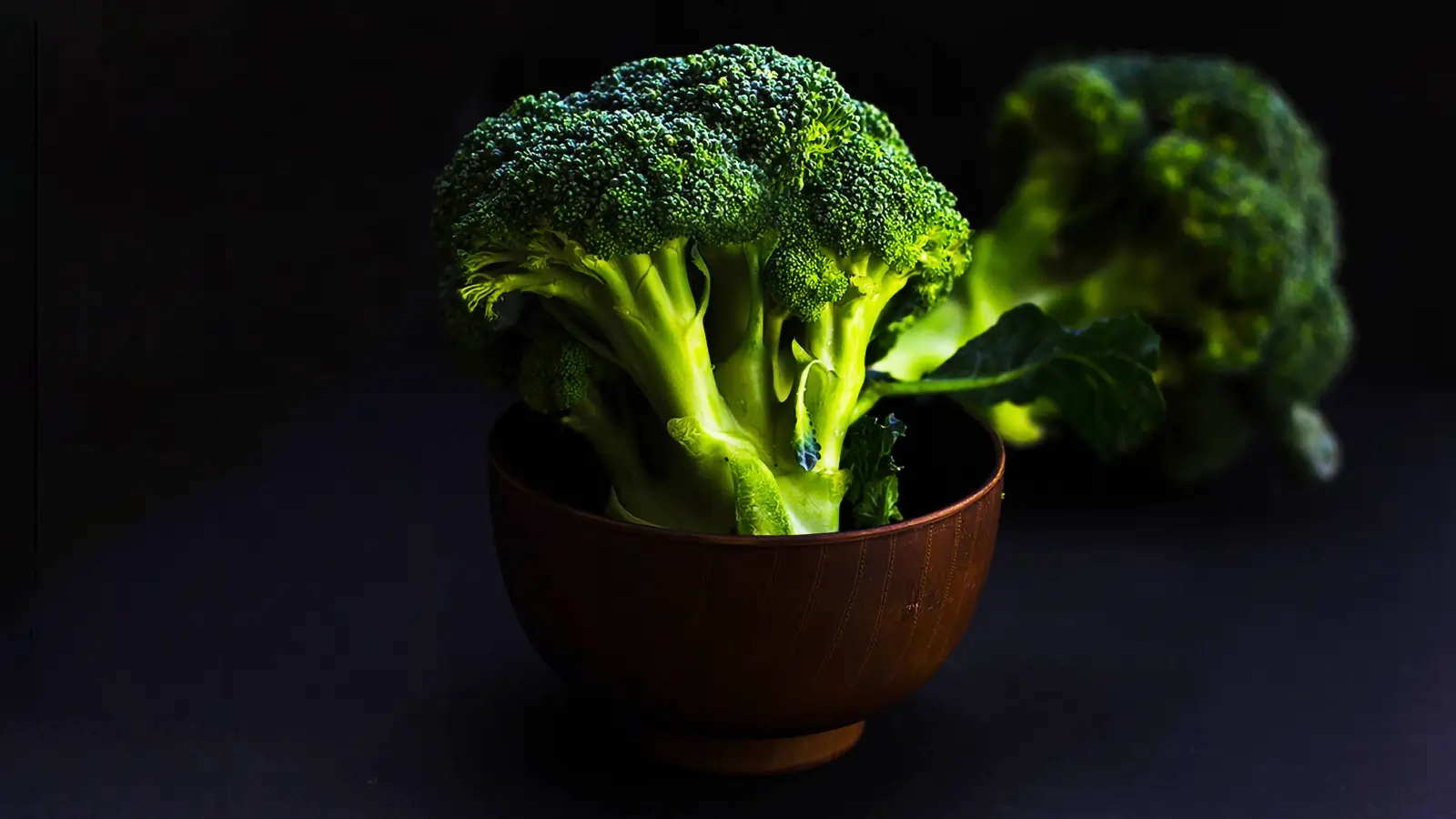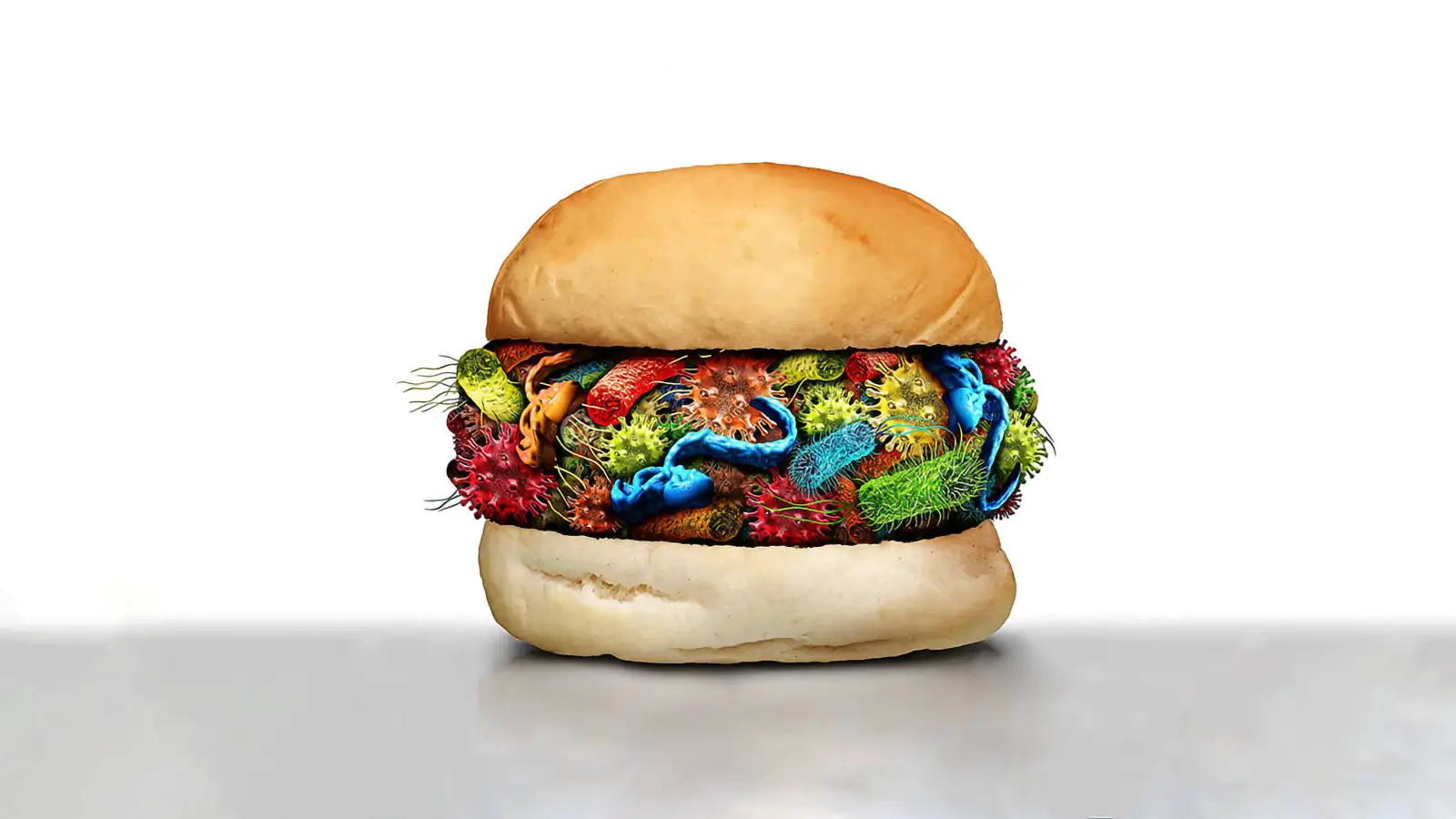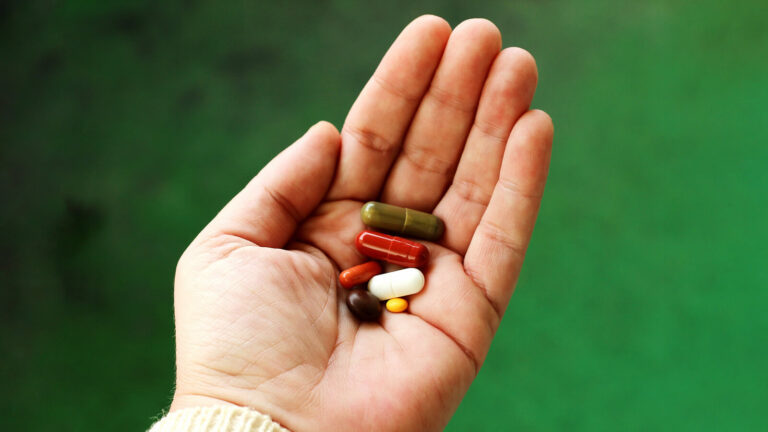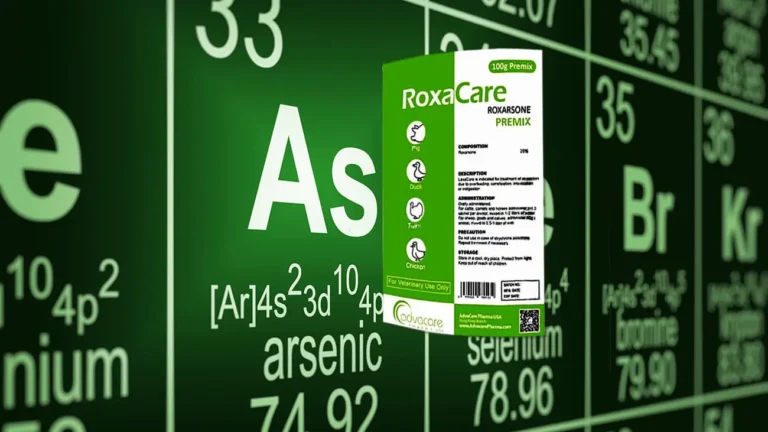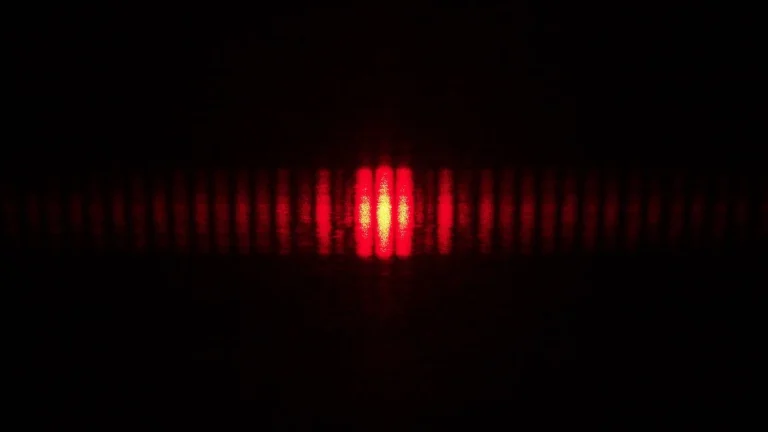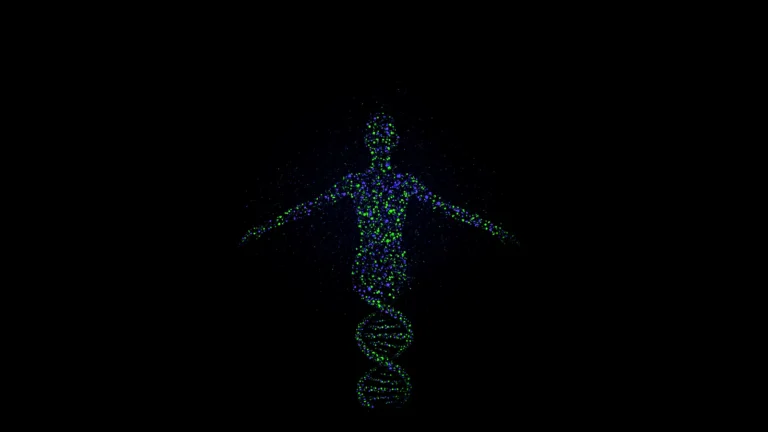Exposition à l'Acrylamide - Chips, Frites et Cancer
L'acrylamide est classé comme cancérogène humain du groupe 2A. En 2002, il a été découvert à des concentrations extrêmement élevées dans des croustilles et des frites.
Milos Pokimica
Écrit par : Milos Pokimica
Examiné Médicalement Par : Dr. Xiùying Wáng, M.D.
Mis à jour le 9 juin 2023L'acrylamide est un produit chimique principalement industriel qui a été utilisé dans de nombreux processus industriels, tels que la production de plastiques, de colorants et de papier. Il est également utilisé dans le traitement des eaux usées, des eaux usées et du traitement de l'eau potable. On le trouve également dans de nombreux produits de consommation, tels que les adhésifs, les emballages alimentaires et le calfeutrage.
Aux États-Unis, l'acrylamide est classé comme cancérigène du groupe 2A et comme substance extrêmement dangereuse. En raison de sa nature toxique, les entreprises qui en font usage sont soumises à des exigences de déclaration strictes.
En 2002, il a été découvert à des concentrations extrêmement élevées dans des croustilles et des frites.
Les concentrations étaient si élevées que ces deux types d'aliments seraient interdits aux enfants dans des circonstances normales. Il a également été découvert, mais pas au même niveau extrême, mais toujours dans la plage toxique dans tous les autres féculents qui avaient été chauffés à plus de 120° C (248° F).
Comme le pain par exemple.
Il n'y avait pas de niveau détectable dans les aliments non chauffés ou bouillis. Ce qui s'est passé, c'est que le niveau calculé d'absorption moyenne d'acrylamide n'a pas atteint le niveau qui présente un risque d'effets négatifs sur le système nerveux et la fertilité, ce qui a permis de conclure que les niveaux d'acrylamide dans les aliments étaient sans danger pour le système nerveux. Toutefois, l'effet synergique qu'il pourrait avoir avec d'autres toxines environnementales n'a pas été calculé, et aucune étude n'a été réalisée à ce sujet non plus. La cancérogénicité de l'acrylamide pour l'homme n'a suscité que des inquiétudes fondées sur la cancérogénicité connue chez les animaux de laboratoire. Des études sur les rongeurs ont associé l'exposition à l'acrylamide au risque de plusieurs types de cancer.
Des études sur l'homme l'ont lié au cancer du rein, au cancer du sein, au cancer de l'endomètre, aux cancers de l'ovaire et de la prostate.
Alors, que fait le chauffage pour produire de l'acrylamide ? Il existe un acide aminé (un élément constitutif des protéines) appelé asparagine. On le trouve dans tous les types de protéines, y compris les protéines végétales. Certaines variétés de pommes de terre en contiennent plus que tout autre produit alimentaire connu.
Lorsque des températures élevées commencent à chauffer l'asparagine en présence de certains amidons ou sucres, il se produit une réaction chimique qui transforme l'asparagine en acrylamide. Pour réduire l'exposition, si vous y tenez, vous pouvez utiliser des méthodes de cuisson à basse température, comme l'ébullition et le micro-ondes. Les méthodes de cuisson à haute température, telles que la cuisson au four, la friture ou le gril, produiront de l'acrylamide en fonction des concentrations de l'acide aminé lui-même, de la concentration des amidons, ainsi que de la température et de la durée de la cuisson.
Des temps de cuisson plus longs augmentent la production d'acrylamide lorsque la température de cuisson est supérieure à 120 degrés Celsius.
Aucun animal dans la nature ne fait subir aux aliments des traitements tels que la friture. Il s'agit d'un processus non naturel et, comme il s'agit d'une nouvelle invention liée à l'évolution, nous ne disposons pas de défenses adéquates contre sa toxicité. Une fois ingéré, l'acrylamide est traité par le système enzymatique du cytochrome P450 et converti en glycidamide, puis détoxifié. Même si nos voies métaboliques peuvent nous aider à le détoxifier dans une certaine mesure, nous pouvons néanmoins solliciter la capacité de détoxification de notre foie à un point tel qu'il ne sera pas en mesure de faire son travail à temps.
Manger beaucoup de chips, par exemple, surtout si vous êtes un jeune enfant, peut surcharger ces voies de désintoxication et vous exposer à un risque de santé dû à une exposition excessive à cette substance. Il est possible que nos ancêtres hominins aient été exposés à cette substance chimique, car nous possédons le système enzymatique du cytochrome P450, et que l'Homo erectus ait rôti certains légumes riches en amidon, mais il est peu probable qu'il ait été exposé à des niveaux aussi élevés que nous le sommes aujourd'hui.
La friture détruit la consistance moléculaire de nombreuses molécules contenues dans les aliments. Le problème se pose lorsque les acides aminés, qui sont les éléments constitutifs de nos propres protéines et cellules, sont endommagés. Si le dommage est partiel, notre corps intégrera ces acides aminés endommagés dans nos cellules sans se rendre compte qu'ils sont réellement endommagés. Il en résulte un effet mutagène et cancérigène. La friture et la cuisson détruisent également les huiles qui ne sont pas thermostables (oméga 3 6 9) en les forçant à s'oxyder et à devenir rances et cancérigènes. Certaines études montrent une corrélation significative entre les aliments frits et certains types de cancer. Si vous êtes atteint d'un cancer, il serait logique d'éviter toute transformation alimentaire, à l'exception de l'ébullition. La liste des substances chimiques toxiques et cancérigènes qui peuvent être créées à haute température est longue.
Si vous voulez éviter l'acrylamide, alors pas de céréales grillées, pas de chips, pas de frites, pas de céréales de blé grillées, pas de biscuits et de crackers, pas de substituts de café à base de céréales grillées, pas de fèves de cacao grillées (et de chocolat, de Nutella et d'autres produits à base de cacao). Certaines olives noires dénoyautées en conserve peuvent également entrer dans cette catégorie à haut risque en ce qui concerne l'exposition à l'acrylamide.
Le seuil de tolérance est fixé à 2,6 microgrammes par kilogramme de poids corporel. Pour un être humain de 70 kg, cette valeur est de 182 microgrammes. Pour les enfants, c'est beaucoup moins que cela. Je soutiens que cette limite est délibérément fixée à un niveau élevé. L'abaissement de cette limite entraînerait le rappel légal obligatoire d'une grande variété de produits alimentaires que nous trouvons dans nos magasins et nos restaurants. Les grosses frites de McDonald's contiennent 82 microgrammes. Même au niveau actuellement autorisé, il sera nécessaire, par exemple, de restreindre légalement la vente des grosses frites de McDonald's aux enfants de moins de 35 kg. Si vous souhaitez réduire votre exposition à l'acrylamide alimentaire, vous devrez limiter votre consommation des aliments susmentionnés.
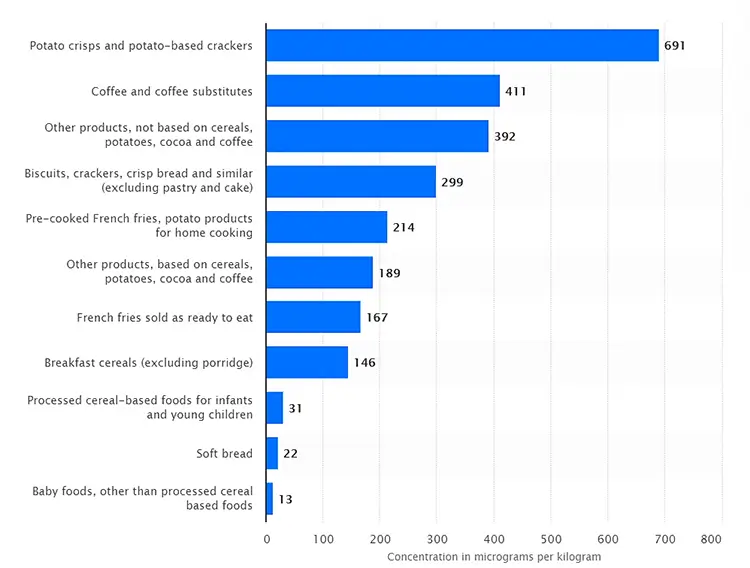
La concentration moyenne d'acrylamide trouvée dans les produits alimentaires au Royaume-Uni (UK) en 2015 (en microgrammes par kilogramme).
Publié par Statista Research Department, 1 août 2016
Cependant, encore une fois, nous oublions quelque chose.
Tout aliment frit ou cuit au four entraîne une réaction similaire. Il ne s'agit pas seulement d'un aliment riche en amidon. Si nous mangeons des produits animaux, le même processus se produira, mais d'autres produits chimiques se formeront. Il s'agit d'une activité non naturelle. J'ai déjà mentionné le lien entre l'harmane et le tremblement essentiel. Les hydrocarbures aromatiques polycycliques (HAP) et les amines hétérocycliques (HCA) se forment lorsque tout tissu animal, et pas seulement les muscles, quelle que soit l'espèce, est préparé à l'aide d'une cuisson à haute température. Griller directement sur une flamme nue ou frire à la poêle entraîne la création de 17 amines hétérocycliques (HCA) différentes. Les HCA et les HAP sont des cancérogènes avérés pour l'homme, entre autres. Les amines hétérocycliques ne décrivent que la forme, mais il s'agit toujours d'acides aminés dont la structure moléculaire est endommagée par le processus de chauffage et que l'organisme ne reconnaît pas entièrement comme étant endommagés. Des études menées sur des rongeurs ont montré que le fait de les nourrir avec des HCA entraînait le développement de cancers dans différents organes, notamment la prostate, le sein et le côlon.
Au cours de la vie, l'exposition à toutes les autres toxines et mutagènes présents dans l'environnement n'est pas une bonne idée. Les milliers de toxines différentes que notre foie doit détoxifier ne sont peut-être pas cancérigènes, mais c'est la charge elle-même qui pose problème dans notre nouvel environnement. Dans la nature propre de notre passé, où nous avons évolué dans des conditions vierges, sans pollution, notre corps devait toujours faire face à certaines toxines naturelles, mais nous n'étions pas surchargés d'autres produits chimiques, comme c'est le cas aujourd'hui. Par conséquent, dans notre nouvel habitat, nous devons penser à réduire l'exposition à toutes les toxines possibles, car nous n'avons pas pu les réduire toutes. Cependant, nous devons éviter ce que nous pouvons éviter, et même les toxines qui ne sont pas mortelles doivent être évitées pour réduire notre surcharge. Le foie surchargé laissera certaines des toxines les plus dangereuses s'accumuler et endommager nos cellules parce qu'il a trop de travail à faire, en quelque sorte. En descendant dans la chaîne alimentaire, en mangeant bio, en évitant les conservateurs, en évitant les fritures et les cuissons excessives, en évitant les toxines naturelles, et en évitant de consommer des aliments qui ne sont pas mortels, nous pouvons réduire notre surcharge. boire de l'eau propre n'est que le début.
Références :
Passages sélectionnés à partir d'un livre : Pokimica, Milos. Devenir vegetarien? Examen de la science, partie 1. Kindle éd., Amazone, 2018.
- Lineback, David R et al. "L'acrylamide dans les aliments: un examen de la science et des considérations futures." Revue annuelle des sciences et technologies alimentaires vol. 3 (2012): 15-35. doi:10.1146/annurev-food-022811-101114
- Michalak, Joanna et al. "Indices d'acrylamide et de traitement thermique dans les aliments achetés sur le marché." Revue internationale de recherche environnementale et de santé publique Vol. 16.23 4724. 27 nov. 2019, doi:10.3390/ijerph16234724
- Chen, Ming-Jen et al. "Un modèle de régression statistique pour l'estimation des concentrations d'acrylamide dans les frites pour l'évaluation du risque de cancer excessif à vie." Toxicologie alimentaire et chimique : une revue internationale publiée pour la British Industrial Biological Research Association vol. 50,10 (2012): 3867-76. doi:10.1016/j.fct.2012.07.010
- Lipworth, Loren et al. "Examen des études épidémiologiques sur l'apport alimentaire en acrylamide et le risque de cancer." Revue européenne de prévention du cancer : la revue officielle de l'Organisation européenne de prévention du cancer (ECP) vol. 21,4 (2012): 375-86. doi:10.1097/CEJ.0b013e3283529b64
- Stott-Miller, Marni et al. "Consommation d'aliments frits et risque de cancer de la prostate." The Prostate vol. 73,9 (2013): 960-9. doi:10.1002/pros.22643
- Hogervorst, Janneke G et al. "L'apport alimentaire en acrylamide et le risque de cancer des cellules rénales, de la vessie et de la prostate." La revue américaine de nutrition clinique vol. 87,5 (2008): 1428-38. doi:10.1093/ajcn/87.5.1428
Articles Similaires
Vous avez des questions sur la nutrition et la santé ?
J'aimerais avoir de vos nouvelles et y répondre dans mon prochain post. J'apprécie votre contribution et votre opinion et j'ai hâte d'avoir de vos nouvelles bientôt. Je vous invite également à nous suivre sur Facebook, Instagram et Pinterest pour plus de contenu sur l'alimentation, la nutrition et la santé. Vous pouvez y laisser un commentaire et entrer en contact avec d'autres passionnés de santé, partager vos conseils et expériences, et obtenir le soutien et les encouragements de notre équipe et de notre communauté.
J'espère que ce billet a été instructif et agréable pour vous et que vous êtes prêt à mettre en pratique les connaissances que vous avez acquises. Si vous avez trouvé ce billet utile, veuillez le partager à vos amis et à votre famille qui pourraient également en bénéficier. On ne sait jamais qui peut avoir besoin de conseils et de soutien dans son parcours de santé.
– Vous pourriez aussi aimer –

Apprendre la Nutrition
Milos Pokimica est docteur en médecine naturelle, nutritionniste clinique, rédacteur en santé médicale et nutrition et conseiller en sciences nutritionnelles. Auteur de la série de livres Devenir vegetarien ? Examen des sciences, il exploite également le site Web de santé naturelle GoVeganWay.com
Avis de non-responsabilité médicale
GoVeganWay.com vous propose des critiques des dernières recherches liées à la nutrition et à la santé. Les informations fournies représentent l'opinion personnelle de l'auteur et ne sont pas destinées ni implicitement à remplacer un avis médical professionnel, un diagnostic ou un traitement. Les informations fournies sont fournies à titre informatif uniquement et ne sont pas destinées à remplacer la consultation, le diagnostic et/ou le traitement médical d'un médecin ou d'un prestataire de soins de santé qualifié.NE JAMAIS IGNORER LES CONSEILS MÉDICAUX PROFESSIONNELS OU RETARDER LA RECHERCHE DE SOINS MÉDICAUX EN RAISON DE QUELQUE CHOSE QUE VOUS AVEZ LU OU ACCÉDÉ SUR GoVeganWay.com
N'APPLIQUEZ JAMAIS DE CHANGEMENTS AU STYLE DE VIE OU TOUT CHANGEMENT À LA SUITE DE QUELQUE CHOSE QUE VOUS AVEZ LU SUR GoVeganWay.com AVANT DE CONSULTER UN PRATICIEN MÉDICAL AGRÉÉ.
En cas d'urgence médicale, appelez immédiatement un médecin ou le 911. GoVeganWay.com ne recommande ni n'approuve aucun groupe, organisation, test, médecin, produit, procédure, opinion ou autre information spécifique pouvant être mentionné à l'intérieur.
Choix de l'éditeur -
Milos Pokimica est docteur en médecine naturelle, nutritionniste clinique, rédacteur en santé médicale et nutrition et conseiller en sciences nutritionnelles. Auteur de la série de livres Devenir vegetarien ? Examen des sciences, il exploite également le site Web de santé naturelle GoVeganWay.com
Derniers articles –
Nouvelles Basées Sur Les Plantes
-
Texas Has Become The Seventh US State To Ban Cultivated Meat Sales
on juin 30, 2025
-
Vegan Feta And Corn Salad
on juin 30, 2025
-
Sunflower Meal Is A ‘Promising’ New Protein Base For Meat Alternatives, Says Study
on juin 30, 2025
-
This Is What They Eat In Okinawa To Live Longer
on juin 30, 2025
-
Where Do Vegans Get Their Protein? The Ultimate 2025 Response
on juin 29, 2025
-
Saffron Green Bean Rice
on juin 29, 2025
-
Tomato Choka Salad With Chickpea Tofu
on juin 29, 2025
Top Des Nouvelles Sur la Santé - ScienceDaily
- Scientists just found a sugar switch that protects your brain from Alzheimer’son juin 30, 2025
Scientists have uncovered a surprising sugar-related mechanism inside brain cells that could transform how we fight Alzheimer’s and other dementias. It turns out neurons don’t just store sugar for fuel—they reroute it to power antioxidant defenses, but only if an enzyme called GlyP is active. When this sugar-clearing system is blocked, toxic tau protein builds up and accelerates brain degeneration.
- This AI tracks lung tumors as you breathe — and it might save liveson juin 30, 2025
An AI system called iSeg is reshaping radiation oncology by automatically outlining lung tumors in 3D as they shift with each breath. Trained on scans from nine hospitals, the tool matched expert clinicians, flagged cancer zones some missed, and could speed up treatment planning while reducing deadly oversights.
- Ancient DNA reveals leprosy hit the Americas long before colonizationon juin 30, 2025
Leprosy’s tale stretches from 5,000-year-old skeletons in Eurasia to a startling 4,000-year-old case in Chile, revealing that the rare strain Mycobacterium lepromatosis haunted the Americas millennia before Europeans arrived. Armed with cutting-edge ancient-DNA sleuthing, scientists have pieced together remarkably well-preserved genomes that challenge the idea of leprosy as purely a colonial import and hint that the disease may have homegrown American roots awaiting confirmation by future […]
- Scientists discover ‘off switch’ enzyme that could stop heart disease and diabeteson juin 30, 2025
Researchers at UT Arlington have discovered a key enzyme, IDO1, that when blocked, helps immune cells regain their ability to properly process cholesterol—something that breaks down during inflammation. This breakthrough could offer a powerful new way to fight heart disease, diabetes, cancer, and more. By “turning off” this enzyme, the team restored cholesterol absorption in macrophages, potentially stopping disease at the source. Even more promising, they found a second enzyme, NOS, that […]
- Fire smoke exposure leaves toxic metals and lasting immune changeson juin 30, 2025
Smoke from wildfires and structural fires doesn t just irritate lungs it actually changes your immune system. Harvard scientists found that even healthy people exposed to smoke showed signs of immune system activation, genetic changes tied to allergies, and even toxic metals inside their immune cells.
- The gene that hijacks fear: How PTEN rewires the brain’s anxiety circuiton juin 29, 2025
Deleting a gene called PTEN in certain brain cells disrupts the brain’s fear circuitry and triggers anxiety-like behavior in mice — key traits seen in autism. Researchers mapped how this genetic tweak throws off the brain’s delicate balance of excitation and inhibition in the amygdala, offering deep insights into how one gene can drive specific ASD symptoms.
- Brain scan breakthrough reveals why Parkinson’s drugs don’t always workon juin 29, 2025
Researchers are using an advanced brain imaging method called MEG to understand why Parkinson’s drug levodopa doesn’t work equally well for everyone. By mapping patients’ brain signals before and after taking the drug, they discovered that it sometimes activates the wrong brain regions, dampening its helpful effects. This breakthrough could pave the way for personalized treatment strategies, ensuring patients receive medications that target the right areas of their brain more effectively.
PubMed, #régime-vegan –
- Micronutrient intake and nutritional status in 16-to-24-year-olds adhering to vegan, lacto-ovo-vegetarian, pescatarian or omnivorous diets in Swedenon juin 26, 2025
CONCLUSION: Youth, regardless of dietary practice, need support to ensure adequate micronutrient intakes, particularly for vitamin D and selenium. Further research is required to evaluate iodine nutrition in Swedish youth.
- Dietary Patterns and Sustainable Lifestyles: A Multicenter Study from Latin America and Spainon juin 26, 2025
Food systems interact through multiple dimensions including food security, nutrition, and planetary health. This study aims to associate different dietary patterns with sustainable lifestyles in Latin America and Spain. This was an observational, analytical, multicenter, cross-sectional survey study, with a total of 6412 participants. A self-administered questionnaire was developed in an online format in the Google Docs interface. The questionnaire was divided into sections: (1) […]
- Integrating comparative genomics and risk classification by assessing virulence, antimicrobial resistance, and plasmid spread in microbial communities with gSpreadCompon juin 26, 2025
CONCLUSIONS: The gSpreadComp workflow aims to facilitate hypothesis generation for targeted experimental validations by the identification of concerning resistant hotspots in complex microbial datasets. Our study raises attention to a more thorough study of the critical role of diet in microbial community dynamics and the spread of AMR. This research underscores the importance of integrating genomic data into public health strategies to combat AMR. The gSpreadComp workflow is available at…
- Validation and adaptation of a Turkish version of the dietarian identity questionnaireon juin 25, 2025
Dietarian identity reflects an individual’s cognitive, emotional, and behavioral orientation toward the consumption or avoidance of animal-based foods, including red meat, poultry, fish, eggs, and dairy. This study aimed to adapt and validate the Dietarian Identity Questionnaire (DIQ) for Turkish-speaking populations by establishing its cultural and linguistic suitability and examining dietarian identity profiles among different dietary patterns. The DIQ was adapted into Turkish and […]
- Planting Rights and Feeding Freedom: Navigating the Right to a Vegan Diet in Hospitals and Prisonson juin 20, 2025
The legal recognition of veganism highlights the evolving landscape of dietary choices and their status under human rights law. This paper examines the legal status of vegan diets under the European Convention on Human Rights (ECHR), focusing on public institutions such as prisons and hospitals. By analyzing the first relevant cases before the European Court of Human Rights, it explores the protection of vegan diets under Articles 9 (freedom of thought, conscience, and religion) and 14…
Messages aléatoires –
Postes en vedette -

Dernières Nouvelles de PubMed, #alimentation végétale –
- Adherence to Mediterranean Diet and Implications for Cardiovascular Risk Preventionby Giulia Frank on juin 27, 2025
Background/Objectives:Arterial hypertension, increased carotid intima-media thickness (cIMT), and arterial stiffness (AS) are recognized predictors of cardiovascular disease (CVD). Emerging evidence suggests that vascular remodeling may precede the full development of hypertension. Furthermore, body mass index (BMI), fat mass percentage (FM%), and visceral adipose tissue (VAT), are significant risk factors for cardiovascular events. Conversely, adherence to the Mediterranean diet is […]
- Fermented Fruits, Vegetables, and Legumes in Metabolic Syndrome: From Traditional Use to Functional Foods and Medical Applicationsby Karolina Bernacka on juin 27, 2025
Fermentation has been used for centuries to preserve food and to obtain products with new, attractive sensory characteristics. Fermented products are a source of dietary fiber, vitamins, bioactive compounds, and probiotic bacteria with health-promoting properties. This review provides a comprehensive overview of the effects of fermented fruits, vegetables, and legumes on metabolic disturbances characterizing metabolic syndrome (MetS). Furthermore, the chemical composition, microbial […]
- Dos and Don’ts in Kidney Nutrition: Practical Considerations of a Panel of Experts on Protein Restriction and Plant-Based Diets for Patients Living with Chronic Kidney Diseaseby Massimo Torreggiani on juin 27, 2025
Dietary management is a pillar of chronic kidney disease (CKD) treatment. While some rules are the same as dietary prescriptions for the general population and those suffering from other chronic diseases (energy intake, salt intake, avoidance of ultra-processed food and limited intake of animal fats), in non-dialysis-dependent patients living with CKD, the specific focus is on protein intake. Low-protein diets (LPDs) and supplemented very low protein diets (sVLPDs) have been successfully…
- Effects of Pork Protein Ingestion Prior to and Following Performing the Army Combat Fitness Test on Markers of Catabolism, Inflammation, and Recoveryby Drew E Gonzalez on juin 27, 2025
Tactical athletes and military personnel engaged in intense exercise need to consume enough quality protein in their diet to maintain protein balance and promote recovery. Plant-based protein sources contain fewer essential amino acids (EAAs), while pork loin contains a higher concentration of EAAs and creatine than most other animal protein sources. This study aimed to determine whether the ingestion of plant-based or pork-based military-style meals ready-to-eat (MREs) affects recovery from […]
- Mediterranean Diet, Obesity-Related Metabolic Cardiovascular Disorders, and Environmental Sustainability: A Systematic Reviewby Sergio Rodríguez Núñez on juin 27, 2025
INTRODUCTION: This article aims to provide an updated overview of the scientific knowledge regarding the interplay between the Mediterranean diet (MedD), sustainability, and cardiovascular and metabolic health.
- Employing Nutrition to Delay Aging: A Plant-Based Telomere-Friendly Dietary Revolutionby Joanna Polom on juin 27, 2025
Telomere attrition is a hallmark of cellular aging, influenced by oxidative stress, chronic inflammation, and metabolic dysregulation. Emerging evidence suggests that dietary patterns rich in plant-based, minimally processed foods may influence telomere dynamics, potentially extending healthspan. This narrative review synthesizes current literature on the molecular mechanisms by which specific nutrients-such as antioxidants, polyphenols, omega-3 fatty acids, and methyl donors-affect telomere…
